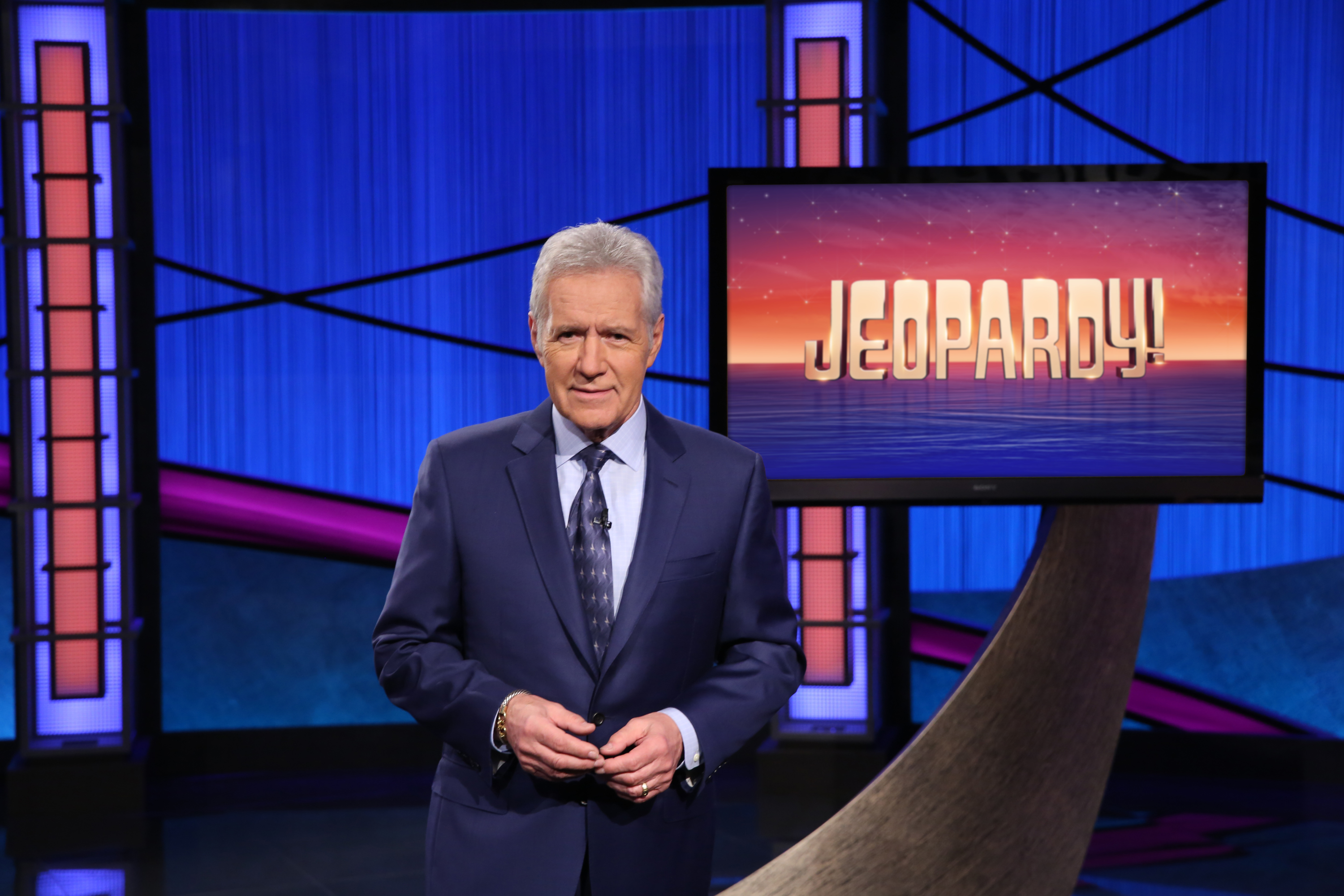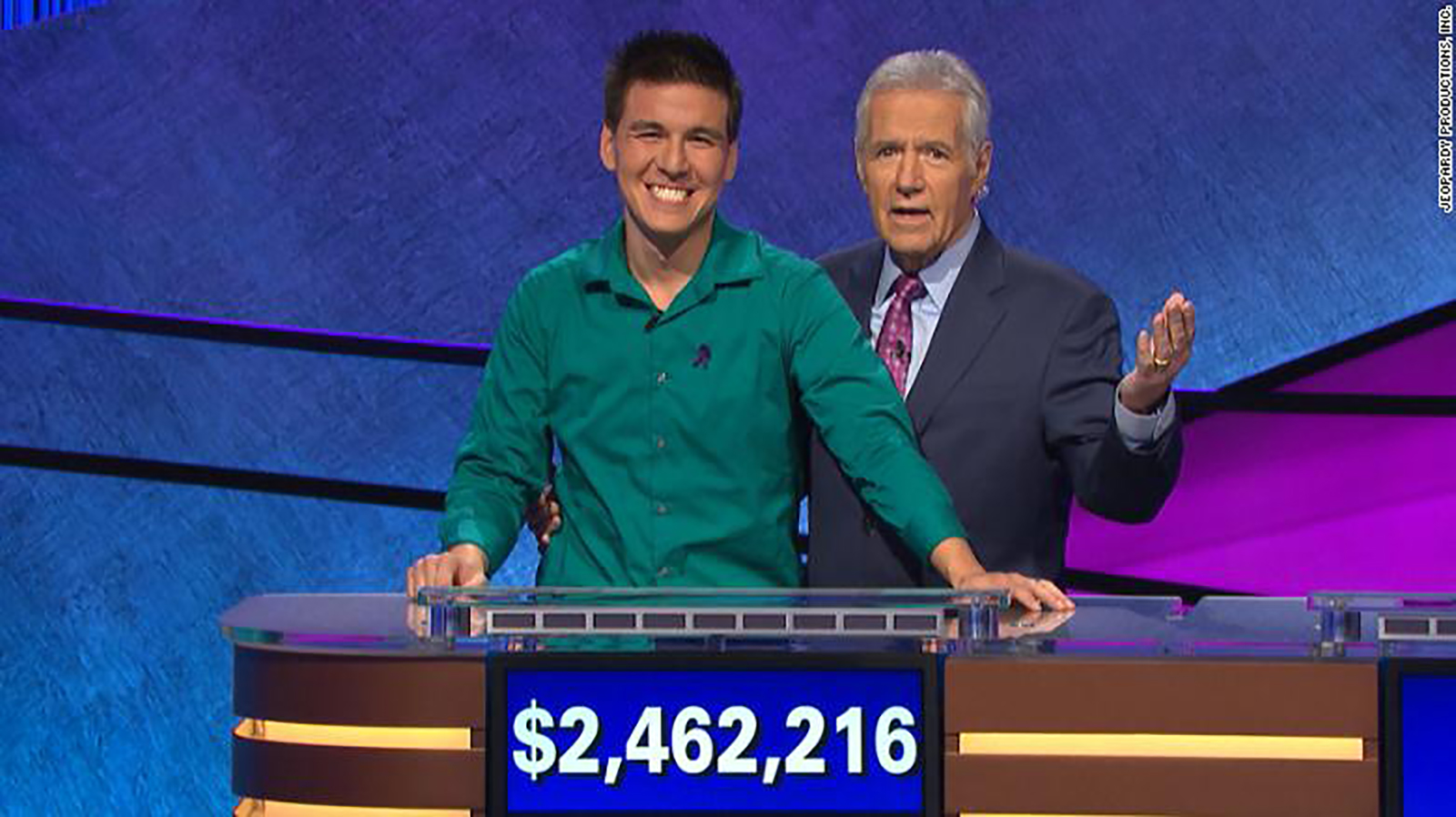2019 Is the Year of ‘Jeopardy!’

The smarter way to stay on top of broadcasting and cable industry. Sign up below
You are now subscribed
Your newsletter sign-up was successful
In TV time, 36 seasons is unspeakably ancient, but this year game veteran Jeopardy! exploded into one of TV’s most talked-about shows.
In 2019, the Sony Pictures Television-produced game hit multiyear highs, led all of syndication in the ratings several times, was memed all over social media and discussed around dinner tables across the nation.
Two people in particular drove the veteran show’s success: host Alex Trebek, who announced March 6 that he was battling stage 4 pancreatic cancer and who has since seen an outpouring of love from Jeopardy!’s widespread audience; and super-contestant James Holzhauer, who burst on the scene April 4, and shattered the record for most money won in a single game, snagging $43,680 in his first outing. He then beat his own record several times, finally setting the record for the most money won in a single game: $131,127 on April 17.

Holzhauer lost to Chicago librarian Emma Boettcher on June 3, having won a total of $2,464,216, and falling just short of Ken Jennings’s regular-play all-time cash-winning record of $2,520,700. It seemed like a surprisingly short run for the dynamic player, but not to worry, he was soon to return.
On Nov. 15, Holzhauer won this year’s Tournament of Champions, getting redemption for his earlier loss by beating Boettcher and adding another $250,000 to his total winnings. That week, the show shot to a 7.2 live-plus-same-day household rating, according to Nielsen, to lead all of syndication.
Winner’s Circle
On Nov. 18, ABC announced that starting Jan. 7 it will air a “Greatest of All Time” tournament pitting Holzhauer against Jennings and the show’s biggest total money winner, Brad Rutter. The three immediately took to social media to gently trash-talk each other.
The smarter way to stay on top of broadcasting and cable industry. Sign up below
“All proceeds go to buying @James_ Holzhauer a nice sport coat or blazer, and maybe even a necktie,” Jennings tweeted after ABC announced the tournament.
According to Jeopardy! executive producer Harry Friedman, all three men were immediately interested in facing each other.
“They are pretty seasoned competitors,” Friedman said. “I don’t think they are easily intimidated.”
All of it demonstrates why in an increasingly fragmented media landscape and with the decreasing relevance of linear TV, it still makes sense to take a risk on syndication.
This fall, NBCUniversal launched The Kelly Clarkson Show into daytime syndication. The show, which is averaging a 1.4 live-plus-same-day household rating, has been renewed for a second season. When Jeopardy! made its syndication debut in 1984, a show that scored a 1.4 in households would have been canceled in mere weeks. Today, that’s considered a healthy start.
Kelly Clarkson and Jeopardy! have one important trait in common: both have strong digital and social media presences, and that makes all the difference in today’s digital-first world.
“The show’s ratings probably wouldn’t have gone up as much without social media,” media consultant Bill Carroll said. “Before social media, you might see an article in the paper, but you would only see promotion on your local station. Now everybody knows what’s happening. It just becomes part of the culture and Jeopardy! is so uniquely ingrained in the culture.”
“More than ever before, we have a lot of Jeopardy! ambassadors,” Friedman said. “It’s a combination of former contestants who are very active on social media, celebrities who are mentioned in clues who post about that, and their fans and followers.”
Select episodes of Jeopardy! also are available to watch on Hulu and Netflix beyond being available on local TV stations.
Live Long and Profit
Longevity is really the brass ring in syndication, and it’s something Jeopardy! has in spades. Longevity equals profitability: Once a show is up and running, startup costs are behind it, and revenue is steady. Jeopardy!, like almost all first-run syndicated shows, earns revenue from both domestic and international license fees and advertising. When a contestant like Holzhauer comes on and spikes the ratings, that means more revenue for the show; its studio; its distributor, CBS Television Distribution, and its station partners.
“Once you get a successful show in syndication, it’s really the question of getting past year three,” Carroll said. “If you get past year three, the odds are good you are going to go to year 10 and if you get to year 10, you’ll be around forever.”
For Friedman, who is preparing to retire in May after executive producing both Jeopardy! and Wheel of Fortune for more than two decades, all the late-game success is bittersweet.
“I have a career that I have been so fortunate to enjoy,” Friedman said. “I’ve worked with all the best people in this business on two highly respected shows. It’s a nice note to end on.”
Contributing editor Paige Albiniak has been covering the business of television for more than 25 years. She is a longtime contributor to Next TV, Broadcasting + Cable and Multichannel News. She concurrently serves as editorial director for The Global Entertainment Marketing Academy of Arts & Sciences (G.E.M.A.). She has written for such publications as TVNewsCheck, The New York Post, Variety, CBS Watch and more. Albiniak was B+C’s Los Angeles bureau chief from September 2002 to 2004, and an associate editor covering Congress and lobbying for the magazine in Washington, D.C., from January 1997 - September 2002.

